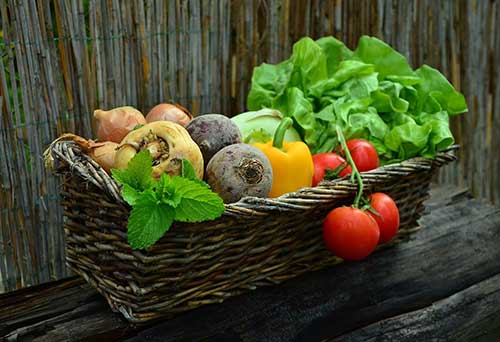Dexway English Magazine: A1 – Edition 1
WH- QUESTION WORDS
There are two types of questions, yes and no questions and wh- questions. Yes and no questions are called closed questions because there is only one answer.
Do you like coffee? Yes
Do you like winter? No
WH- are much more important because we give more information when we answer. The wh- question words are: When, what, why, where, which, who and how. Here we explain how each one is used:
WHAT – Ask for information about something.
WHEN – Ask about the time when something has happened or will happen.
WHO – Ask about someone; a person.
HOW – Ask about the way something is done.
WHICH – Ask for information about something that is limited.
WHERE – Ask questions about a place or a position.
WHY – Ask for a reason
Plastic bank notes
In September 2016, the United Kingdom follows Australia and Canada in using plastic bank notes for the first time.
The new five-pound note started to circulate in September. The note features Sir Winston Churchill. Plastic notes have many benefits over paper notes because they cannot break or rip, they are waterproof, and they are very hard to copy. The Bank of England says that after five (5) years, the current five-pound notes have to be destroyed.
The Bank of England has invested 70 (seventy) million pounds into making the new note. However, some people think that the new plastic note is a waste of time and money. They have also said that shops and banks will need to pay at least twenty (20) million pounds to change ATMs, Self-service machines and vending machines since the new notes are 15% (fifteen percent) smaller than the older ones.
Considering advantages and disadvantages, at the moment we cannot say that it is something beneficial. On the contrary, we need to wait some years to see if this new change has been a real improvement or not.
City bikes…
A GREENER TYPE OF PUBLIC TRANSPORT
These days everybody tries to be energy-efficient and nobody wants to damage the environment; it is cool to be green. Many cities now have public bicycles available. It is the ideal way to travel around a city; it is faster than walking and healthier than taking the bus.
Providing a public bicycle service is expensive so often, the bicycles have advertisements on them and usually users pay a small charge to use the bicycles.
We like to think of our generation as the first environmentally-conscious generation, but public bicycle schemes were introduced in the past as well, although they were unsuccessful because all the bikes were stolen or damaged. In the 21st century, we are either more respectful or bicycle security is better.
But the downside is having more injuries and accidents. Most cities do not have records of accidents between cyclists and pedestrians (cyclist vs. pedestrian) but do record accidents between cyclist and cars (cyclist vs. Cars) and in 2010 there were 935 (nine hundred and thirty five) accidents on bikes in the city of London. Car drivers do not have respect for cyclist and cyclists do not have respect for pedestrians!
Vegetable sharing
ONE CARROT FOR YOU, ONE CARROT FOR ME!
We are told time and time again about the benefits of vegetables: they have many vitamins and minerals and are part of a healthy lifestyle. We want our vegetables to be fresh and organic, meaning that these vegetables have not been treated with any harmful chemicals.
In New York City, companies have a much better way of getting their vegetables, called vegetable sharing, and this is how it works: every week the farmer goes to the office and leaves bags and bags of vegetables, which are shared between all the workers; then, the office workers pay 350 (Three Hundred and Fifty) dollars to have 22 weeks of fresh and organic vegetables delivered to your door.
Would you buy organic vegetables? Do we know how good vegetables are for us? Is it clear that supermarket bought vegetables bad for us? Why are organic vegetables good for us?

We need vegetables 360 (three hundred and sixty) days a year. We eat vegetables with nearly every meal, so we need them fresh every day in our supermarkets, this means that the farmer has to use some kind of control of pests (things like black-fly, white-fly or potato beetle that can damage our food) and needs to spray his crop with pesticides and insecticide. However, our food is like a sponge and can soak these chemicals up and, as a consequence, we eat them.
Nobody really knows the damage this is doing to us. Organic food, on the other hand, has no chemicals but it does take longer to grow. One idea to make it possible is if everybody has a small garden, or if a community has a shared garden, so we all can grow our own vegetables.
What do you prefer? Why do we not grow our own vegetables? Would you like to? Does time stop you doing it?
In England, the government has a vegetable garden scheme. Here people pay twenty (20) pounds a year and are given a small plot of land. On this land, they can plant anything they want and it is a very good way to supply our tables with fresh, seasonal organic vegetables.
Robinson Crusoe
BY DANIEL DEFOE
Robinson Crusoe, written by Daniel Defoe in 1971, tells the story of an unlucky sailor. He goes on a boat to Brazil and the boat is shipwrecked. He swims to shore and finds out that the Captains dog and two cats have also swam to shore. He is sad and thinks maybe he will die, but he takes some tools and wood from the boat before it sinks and he makes a fence to protect him from wild animals. He farms goats and grows food. But one day, carnivores come, kill their prisoners and cook them on the beach; Robinson looks but does nothing.
When the carnivores come back, he helps a prisoner to escape and he calls the prisoner Man Friday. He teaches Man Friday to speak English and they live together on the Island for 28 (Twenty eight) years before a ship comes to rescue them.
I read this story when I was at school and liked Treasure Island, it is a classic.
What is your favourite book? When was the last time you read it?

The colour green
NOT YELLOW
In November, in Dexway English forum, it was said that the most popular colour for them was green, and people pointed out that colours are really important to their lives.
Another example of this is that scientists believe that if we work-out or exercise outdoors we can benefit more because of the colour green around us. The colour green can boast or increase mood, self-esteem, motivation and enjoyment.
So there are more reasons to get out of the gym and start working out outside. Do you do exercise in a gym or outside?
But why is green so good? Well, first, we can see the colour green is the most popular of nature’s colours and it is the second favourite colour of most of us, blue being the first. Green means relax, and stay calm, and can also mean go or it is okay. For example, there is a phrase that says “To give the green light”, which means you can do that. Many television studios have a green room, a place where people can relax and prepare for their shows. We sometimes paint our houses or rooms green for the same reason. We are told to eat our greens, to eat more vegetables such as green beans, artichokes or broccoli, which have large amounts of vitamin C and other things that our bodies need.
